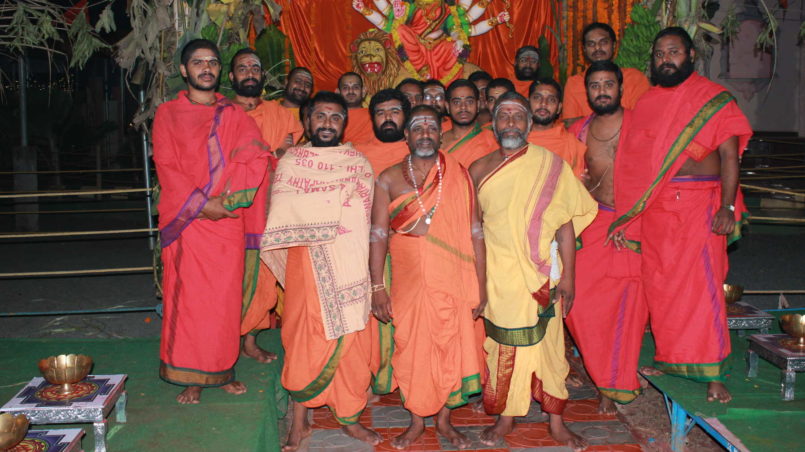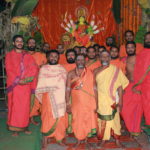Who is a Brahmin?

According to many prominent scholars and social scientists of India, most of the social evils that have been crippling India stem from and have been backed and furthered by the ancient scriptures. It is the teachings in our age-old scriptures which should be held responsible for many of the dogmatic social systems or norms that exist in India.
According to B.R Ambedkar, the principal architect of the modern Constitution of India, the acts of people, and, therefore, also discrimination on the basis of caste and creed, are a result of their belief systems. And such beliefs have their origin in the ancient scriptures. Therefore, according to many scholars, in order to eradicate social evils emanating from archaic social systems, the most basic thing to do is to free Indians from the thralldom of the ancient scriptures.
I have discussed the caste system in earlier articles and would like to take up the same issue here as well. However, over time I have come to understand that most contemporary understanding or beliefs that emanated from our ancient scriptures have been misinterpreted to a great extent.
Scholars have been arduously presenting the truth behind many fallacious arguments which are used to support the caste system or the Varna system. There are many social organizations working to discourage adherence to the caste system as well as working for an improvement of the social status and conditions of the victims of the caste system. Similarly many interest groups, civil movements, NGOs, and legislation are at work to discourage the perpetration of the caste system and to reduce its influence in our contemporary society.
I would like to provide a glimpse of what the ancient scriptures had to say about a Brahmin. However, I believe that one important tool that can be used to discourage the evil practices which emanate from the caste system in India is knowledge. What I intend is dissemination of the ancient knowledge based on which the Varna system was created.
Dissemination of knowledge would break the fallacy of the caste system and could dissolve the delusions that still persist in the minds of many Indians who support the caste system.
Most supporters of the caste system would evoke the Vedas (ancient Hindu scriptures based on which the Hindu way of life is developed) to justify the caste system as, according to them, the caste system originated and has been developed through the knowledge of the Vedas, and thus has some purpose.
It would not be wrong if I say that the caste system is extremely pervasive in the organization of the Indian social fabric and impacts each and every aspect of Indian life.
Only Brahmins can perform prayers in temples and so are expected to be respected. Now Brahmins are considered people with “Sattvik Guna”. In fact, according to the Vedas, people with “Sattvik guna” are those who are spiritual and are engrossed in the realization of the “Brahman”.
In Hindu philosophy, Brahman is a metaphysical concept and is considered the Ultimate Reality in the Universe. According to the Vedas, Brahman can be conceptualized as the Cosmic Principle. Thus, according to many ancient Indian scriptures, a person becomes a Brahmin not by birth but only when he knows the Brahman.
However, according to our ancient scriptures, a Brahmin is one who knows the ultimate truth of existence. A Brahmin is one who has understood and realized the purpose of human life. He is one who now has understanding of the complex push and pulls that binds humans to the material world. A Brahmin is one who is beyond such human compulsions like hunger, thirst, desire, grief, attachment, wealth, social status, birth, death, etc. A Brahmin lives his life without any such expectations and survives on alms given by others.
However, a Brahmin has come to mean anyone who is born into a family that belongs to the Brahmin caste. Considerations like interest in scriptures, wisdom, and spirituality are no longer the criteria that would lead to recognizing and acknowledging one as a Brahmin.
All religious rituals are always performed by Brahmins. The administration of temples and other Hindu religious places are almost in the control of the Brahmins. Similarly, many important and respectable works are still the prerogative of the Brahmins.
Such ideas and such a belief system will seem alien to most non-Indians, but it is a harsh reality of India. It is quite similar to the idea of royalty. A person who has royal lineage takes pride in it irrespective of his present circumstances. Similarly many Brahmins take pride in their caste and believe they are superiors as they are placed highest in the hierarchy of the Indian social structure.
However, such a distorted belief could not have been the motive in the scriptures. Even if any kind of hierarchy was present in the Varna system, it should have been based on a person’s karma or action. The problem lies in the interpretation and eventual dissemination of such misinterpreted ideas of the scriptures.
I do not have first-hand knowledge of the scriptures that originated in the Indian subcontinent. There are possibly scriptures that might have encouraged social practices which are now anachronistic and have led to many injustices. But I believe that true knowledge of ancient scriptures can pave the way to overcoming social evils.
Credits
| Image | Title | Author | License |
|---|---|---|---|
 |
Tamil_brahmins_at_ahoratram | Pavan santhosh.s | CC BY-SA 3.0 |
